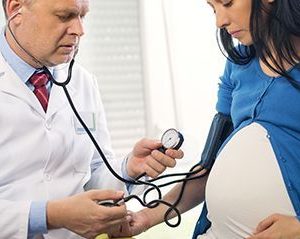- Recognizing the Signs of Hypothyroidism
- 10 Strategies to Overcome Insomnia
- Could Artificial Sweeteners Be Aging the Brain Faster?
- Techniques for Soothing Your Nervous System
- Does the Water in Your House Smell Funny? Here’s Why
- Can a Daily Dose of Apple Cider Vinegar Actually Aid Weight Loss?
- 6 Health Beverages That Can Actually Spike Your Blood Sugar
- Treatment Options for Social Anxiety Disorder
- Understanding the Connection Between Anxiety and Depression
- How Daily Prunes Can Influence Cholesterol and Inflammation
COVID Vaccination in Pregnancy May Pass Helpful Antibodies to Baby

Here’s reassuring news for moms-to-be: Pregnant women who receive the Pfizer-BioNTech or Moderna COVID-19 vaccines appear to transfer protective antibodies to their babies, a new study says.
The researchers assessed 122 pregnant women who received the vaccines. They also analyzed the cord blood of the women’s babies at the time of birth.
The helpful antibodies were found in 99% of the cord blood of babies whose mothers received both doses of the two-dose vaccines, and in 44% of those whose mothers received one dose.
“Receiving two doses prior to birth will increase the likelihood that antibodies are transferred to the baby,” said lead author Dr. Malavika Prabhu, associate director of labor and delivery at Weill Cornell Medicine in New York City.
“This finding is encouraging for pregnant women who want to protect both themselves and their newborn against COVID-19,” Prabhu said in a hospital news release.
The study also found that the vaccines triggered antibody production in pregnant women as soon as five days after the first dose, while the transfer of antibodies through the placenta to the baby began as soon as 16 days after the first dose.
The higher a mother’s antibody levels, the higher her newborn’s antibody levels. Also, the longer since vaccination, the greater the likelihood that mothers and their newborns would have detectable antibodies.
“The study suggests that women who are pregnant shouldn’t delay getting both vaccine doses if they have access to vaccination,” said study senior author Dr. Yawei Jenny Yang, assistant professor of pathology and laboratory medicine at Weill Cornell Medicine.
“Ensuring an adequate amount of time between vaccination and birth ensures that the pregnant woman has enough time to mount an antibody response as well as enough time to pass antibodies on through the cord blood,” Yang explained in the release.
Prabhu said the findings are encouraging. “However, we do not know what level of antibody is protective against COVID-19, and how long those protective antibodies will last, for either the mother or the baby,” she added.
“For now, the safest way to protect newborns from COVID-19 is continued hand hygiene, social distancing and mask usage,” Prabhu said.
The study was published April 28 in the journal Obstetrics & Gynecology.
More information
The U.S. Centers for Disease Control and Prevention has more on COVID-19 vaccines and pregnant women/new mothers.
SOURCE: Weill Cornell Medicine and NewYork-Presbyterian, news release, April 28, 2021
Source: HealthDay
Copyright © 2026 HealthDay. All rights reserved.










